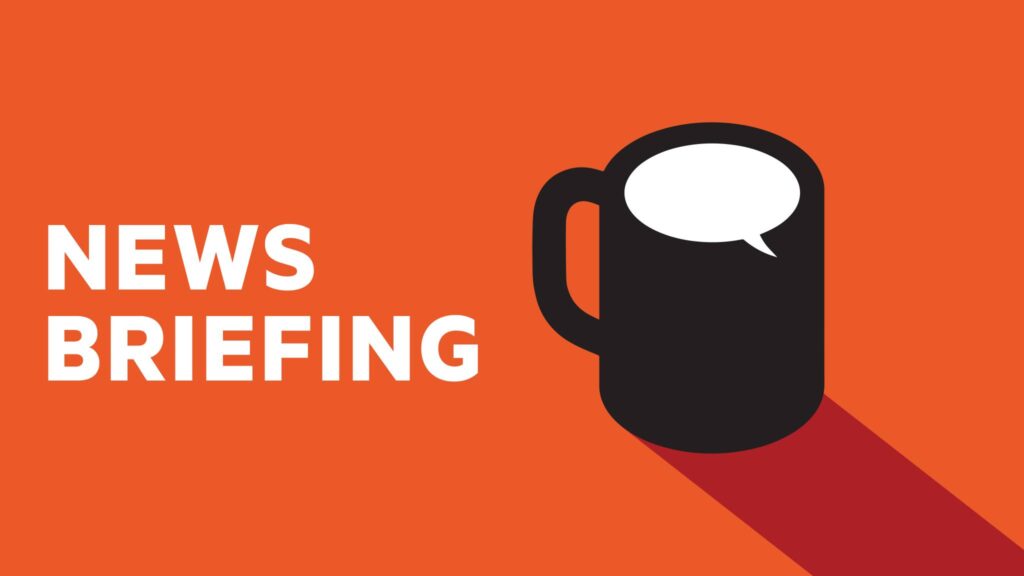Apple joins companies pulling back from Russia over Ukraine attack

Apple has suspended sales of its products in Russia, as the world’s most valuable company led a number of other US brands in boycotting the country following its invasion of Ukraine.
Apple said it would pause all product sales and block access to state media outlets Russia Today and Sputnik from the iPhone’s App Store outside the country.
Carmaker Ford on Tuesday told its Russian joint venture partner that it was suspending operations in the region until further notice, while athletic outfitter Nike paused orders through its website and mobile app in the country, saying it could no longer guarantee deliveries.
Boeing on Tuesday said it would suspend large operations in Russia, as well as the provision of parts, maintenance and technical support services for Russian airlines. It had already closed its office in Kyiv, which has over 100 employees, and paused operations at its Moscow training campus.
Walt Disney and Warner Bros delayed the release of new films in Russian cinemas earlier in the week.
The moves underscore how western companies are abruptly shifting focus from operational concerns associated with the Ukraine invasion — such as how to keep Ukraine-based staff safe and how to pay staff in Russia — to questions about the reputational risks associated with business as usual.
“Critical stakeholders, including employees and clients, all want to know where you stand on this and candidly there’s only one place to stand,” said Simon Freakley, chief executive of AlixPartners, a US consultancy.
“The temperature is going up rather quickly,” said Steven Fox, founder and chief executive of Veracity Worldwide, a strategic intelligence group working with clients in Russia.
Growing expectations of companies’ social responsibilities had put particular pressure on consumer brands “to be seen to be doing something before being pressured by clients or on social media”, he said.
Some US brands that symbolised Russia’s opening to the west after the Cold War, including Levi Strauss, Coca-Cola and PepsiCo, were still reviewing the situation on Tuesday.
Several consumer-facing companies, including Estée Lauder, Kimberly-Clark and Mondelez, had highlighted Russia as one of their fastest-growing markets in recent months, but advisers said the country’s sudden economic isolation had changed multinationals’ views of Russia’s risks and rewards.
Apple’s move to block Russia Today and Sputnik came after Facebook, YouTube and TikTok blocked them in Europe, while Google has removed Russian state media outlets from its News search results.
Customers are unable to make purchases from the Russian version of Apple’s online store, which shows products including the latest iPhones as “currently unavailable”.
Apple said on Tuesday that it had stopped exporting products to Russia last week. It has also followed Google Maps in disabling live traffic updates on its mapping app in Ukraine, which some had feared could present a risk to civilians by highlighting crowded areas.
Last week, Mykhailo Fedorov, Ukraine’s vice-prime minister, had tweeted a letter to Tim Cook, Apple chief executive, asking him to “stop supplying Apple services and products” to Russia, in order to rally opposition among Russia’s youth.
Tech companies’ break with Russia escalated further on Tuesday as Snapchat parent Snap said it would stop showing ads in the region.
Poppy Wood, a former tech adviser to 10 Downing Street, said companies’ response to Russia’s invasion highlighted a new era in which previously neutral players, including tech companies, are realising they need to overhaul how they operate and side with the west.
“Just in the past week we’ve seen the biggest shift in German foreign policy in decades and the Swiss no longer being neutral,” she said. “You just can’t sit back any more and say, ‘sorry we’re service providers — we’re not countries, we’re companies’. That’s not going to fly any more.”
Russia is not a large market for Apple. The iPhone has a market share of about 15 per cent in the country, where total smartphone sales tallied up to around 32mn devices last year, according to Counterpoint Research. That suggests Russians bought about 2 per cent of the more than 220mn iPhones sold globally every year.
Last year, the App Store in Russia generated $694mn from consumer spending, accounting for less than 1 per cent of Apple’s global services revenue, according to Sensor Tower.
All smartphone makers selling their products in Russia are required to notify the Federal Security Service (FSB), the Russian national security agency. The FSB oversees all imports to Russia of encryption technologies, such as the iPhone’s “Secure Enclave” chip that handles Apple Pay, biometrics and other security features.
Like other IT vendors, Apple has been exempted from US restrictions on doing business with the FSB, which were introduced last March when the agency was designated a proliferator of weapons of mass destruction.
Additional reporting by Steff Chávez in Chicago and Matthew Rocco in New York